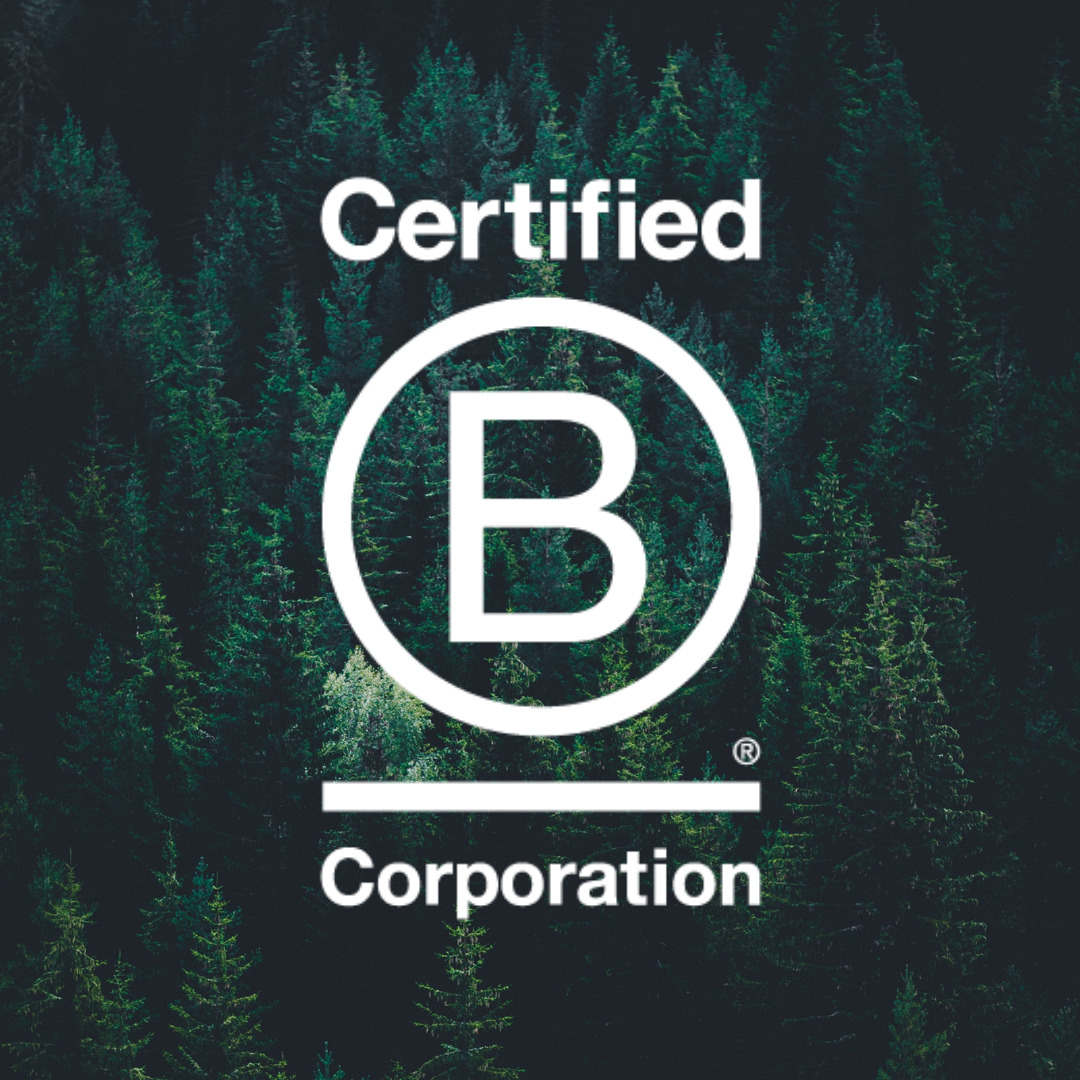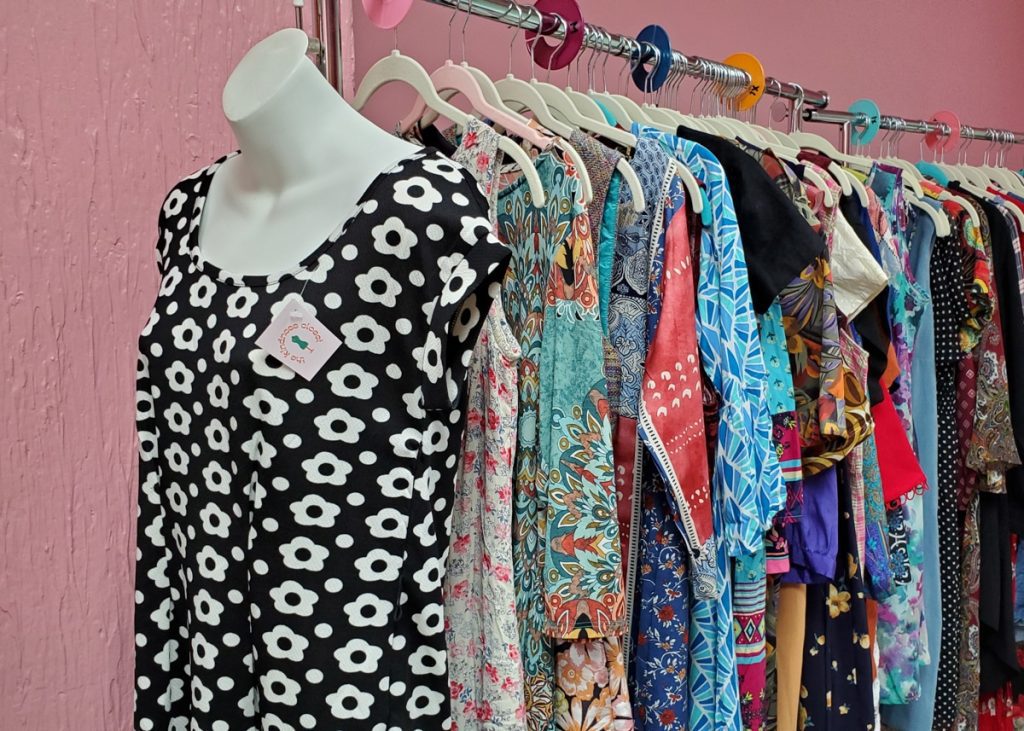As many of us have heard, the H&M in McAllister Place mall is closing. H&M is a very popular store for students, so your initial reaction to this news is most likely sadness. After some research, I have come to believe the closure of this store is more positive than negative.

H&M’s “sustainability” program:
H&M is known chiefly for two things: their affordable prices and their “Conscious Choice” line. This is a line of their clothing that is marketed to be the more sustainable or “conscious” choice.
H&M has also pledged to achieve net zero by 2040 and to cut its absolute emissions by 56% by 2030; they claim efforts are being made to source certified materials, use less water, and use packaging that is more environmentally friendly.
However, these claims made by H&M are highly misleading to consumers.

H&M was involved in numerous scandals, particularly those involving human rights, and many external sources accused the company of greenwashing.
What is greenwashing?
“Greenwashing” is a term used for companies, fashion brands in particular, for making false or misleading claims about their sustainability efforts, particularly through the use or misuse of the Higg Index, which is H&M’s sustainability certification system.
In response to the accusations of greenwashing, H&M has pledged to accelerate its efforts and become fully transparent about its environmental impact by 2023, including publishing a list of suppliers and disclosing the environmental impact of each product and other relevant data.

The company has also set ambitious goals for sustainability, as highlighted by the latest Higg Index sustainability report for H&M. These goals include using 100% sustainably sourced materials by 2030 and becoming climate positive by the same year.
Ultimately, the H&M greenwashing accusations serve as a reminder of the importance of transparency and accountability in the fashion industry and the importance of sustainability reports in revealing a company’s efforts toward ethical products and processes.
What is the Higg Index, and what is the “Higg Scandal”?
Higg Sustainability Profiles were created by the industry group, The Sustainable Apparel Coalition (SAC), to give customers a way to compare the environmental impact of their purchases. These profiles incorporate facts like how much water and fossil fuels were used to create the materials in an item of clothing.
While these profiles seem helpful, companies like H&M can use them to mislead consumers by altering the wording of their statistics. For instance, a dress with a water-use score of -20% (meaning it uses 20% more water than average) was listed on H&M’s website as using 20% less.
According to a 55-page lawsuit filed by The Norwegian Consumer Agency, H&M misleads customers about its Conscious Choice line. H&M promotes its use of recycled polyester fibers as a sustainable or “conscious” choice, but in reality, clothing made of recycled polyester is likely to end up in a landfill due to its weakened fibers. By marketing clothing as being environmentally friendly, H&M is purposefully misleading consumers.
The problem exposed by the “Higg scandal” is not limited to H&M. The fashion industry as a whole faces significant challenges in reducing its environmental impact, and it will take a collective effort from companies, consumers, and policymakers to create a more sustainable future for fashion.
With further research, consumers can discover inconsistencies and intentional misuse of statistics, but it is unrealistic to expect people to go that extra mile.
Reliable Sources:
Here are three online sources that share clear, accessible, and reliable data for consumers:
- B-Corp: This certification evaluates a company’s overall social and environmental performance, including factors such as worker treatment, community involvement, and environmental impact: B Corp Certification demonstrates a company’s entire social and environmental impact. (bcorporation.net)

- Good On You: This rating system evaluates brands based on their impact on people, the planet, and animals. Ratings range from “We Avoid” to “Great”: Good On You – Sustainable and Ethical Fashion Brand Ratings
- Eco-Stylist: Eco-Stylist evaluates brands based on their use of sustainable materials, fair labor practices, and environmental impact. Ratings range from bronze to platinum: Your Guide to Certified Sustainable Clothing Brands | Eco-Stylist
3 alternatives to fast fashion:
While supporting local businesses is always a great alternative to fast fashion, it is not always the most affordable option for many students. There are, however, other affordable and ethical alternatives to fast fashion:
- Support local thrift stores.
Thrift shopping is a simple and affordable alternative to fast fashion. Thrift shops offer clothes at more affordable prices than fast fashion companies without causing harm to workers or the environment. You can also help second-hand stores thrive by donating clothes. Donating to thrift shops provides a broader range of options for consumers who cannot afford ethical, sustainable fashion elsewhere.

2. Buy, sell, and trade clothes online.
Social media users can buy, sell and exchange clothes on a wide range of apps. For example, Etsy offers a range of ethical, sustainable, second-hand, and handmade clothing at varying prices. Social media platforms like Facebook Marketplace and Instagram can also be used to buy, sell, and trade used clothing instead of supporting fast fashion brands. Some apps like Depop are specifically designed for people to buy and sell second-hand clothes online without the hassle of visiting a thrift store in person.
3. Buy timeless, good-quality clothing.
It is common to get caught up in a “fast fashion cycle.” Consumers often purchase cheap, low-quality items from fast fashion companies to keep up with ever-changing trends. However, clothes from fast fashion brands often wear out and rarely remain in style. Investing in high-quality, timeless clothing as alternatives to fast fashion items is a great strategy to save money and feel good about the brands you support.
Moving forward:
Exposing companies like H&M is vital; it encourages companies to take greater accountability for the fashion industry’s role in the climate crisis and puts pressure on them to improve sustainability efforts in general.
As the fashion industry continues to face environmental challenges, it is crucial for companies like H&M to prioritize sustainability and take meaningful steps toward reducing their impact on the planet.
It is important to remember that there is no such thing as sustainable fast fashion.
So do your research and support brands that are doing their part to protect human rights and the planet.


